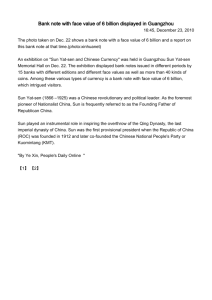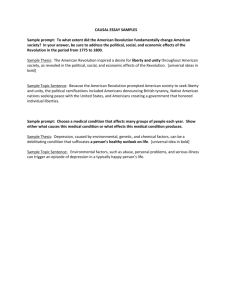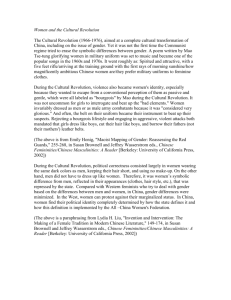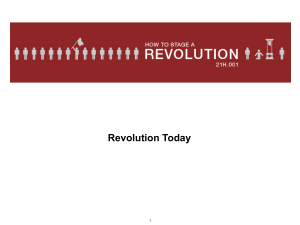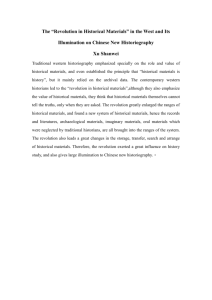Activity 11. Sun Yat-sen, The Three Principles of the People... Source: of-the-people/, accessed April 10, 2010.
advertisement
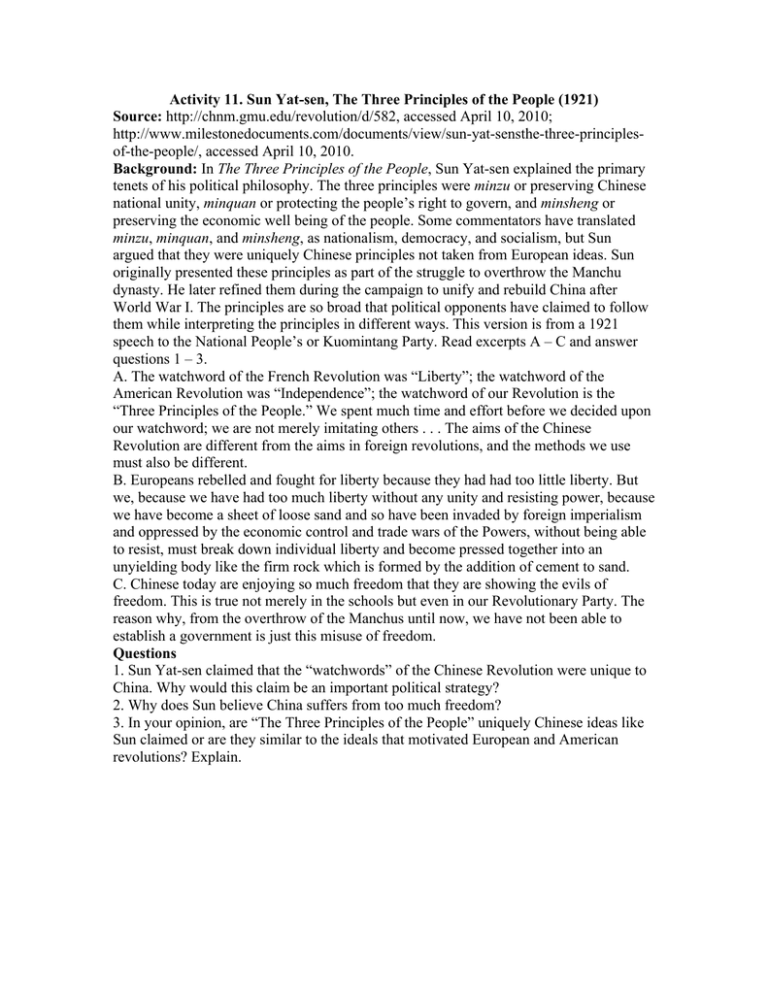
Activity 11. Sun Yat-sen, The Three Principles of the People (1921) Source: http://chnm.gmu.edu/revolution/d/582, accessed April 10, 2010; http://www.milestonedocuments.com/documents/view/sun-yat-sensthe-three-principlesof-the-people/, accessed April 10, 2010. Background: In The Three Principles of the People, Sun Yat-sen explained the primary tenets of his political philosophy. The three principles were minzu or preserving Chinese national unity, minquan or protecting the people’s right to govern, and minsheng or preserving the economic well being of the people. Some commentators have translated minzu, minquan, and minsheng, as nationalism, democracy, and socialism, but Sun argued that they were uniquely Chinese principles not taken from European ideas. Sun originally presented these principles as part of the struggle to overthrow the Manchu dynasty. He later refined them during the campaign to unify and rebuild China after World War I. The principles are so broad that political opponents have claimed to follow them while interpreting the principles in different ways. This version is from a 1921 speech to the National People’s or Kuomintang Party. Read excerpts A – C and answer questions 1 – 3. A. The watchword of the French Revolution was “Liberty”; the watchword of the American Revolution was “Independence”; the watchword of our Revolution is the “Three Principles of the People.” We spent much time and effort before we decided upon our watchword; we are not merely imitating others . . . The aims of the Chinese Revolution are different from the aims in foreign revolutions, and the methods we use must also be different. B. Europeans rebelled and fought for liberty because they had had too little liberty. But we, because we have had too much liberty without any unity and resisting power, because we have become a sheet of loose sand and so have been invaded by foreign imperialism and oppressed by the economic control and trade wars of the Powers, without being able to resist, must break down individual liberty and become pressed together into an unyielding body like the firm rock which is formed by the addition of cement to sand. C. Chinese today are enjoying so much freedom that they are showing the evils of freedom. This is true not merely in the schools but even in our Revolutionary Party. The reason why, from the overthrow of the Manchus until now, we have not been able to establish a government is just this misuse of freedom. Questions 1. Sun Yat-sen claimed that the “watchwords” of the Chinese Revolution were unique to China. Why would this claim be an important political strategy? 2. Why does Sun believe China suffers from too much freedom? 3. In your opinion, are “The Three Principles of the People” uniquely Chinese ideas like Sun claimed or are they similar to the ideals that motivated European and American revolutions? Explain.
